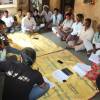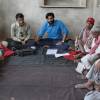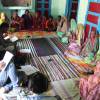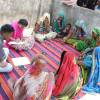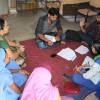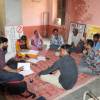Evidence has shown that adopting an integrated holistic approach to the designing of solutions is more effective at supporting recovery and development.

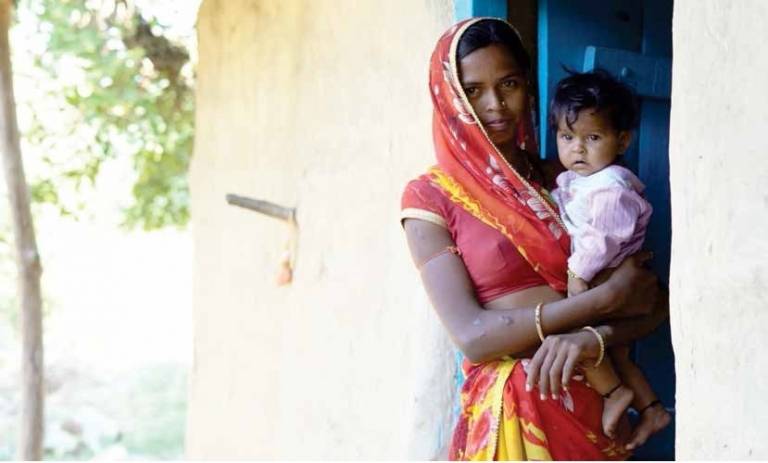
About PANChSHEEEL: Participatory Approach for Nutrition in Children: Strengthening Health, Education, Environment and Engineering Linkages. PANChSHEEEL is an inter-disciplinary MRC (Medical Research Council) funded study, designed to bring together partners from the UK (UCL) and India (SCI, IIT Delhi and JNU) to explore the Health-Education-Engineering-Environment factors that influence Infant and Young Child Feeding (IYCF) practices and nutrition in India.
The World Bank identified under-prioritisation of nutrition and health education as a barrier to progress while the 2016-2030 global strategy emphasises the need to integrate multisector enablers that address education, gender, sanitation, water, agriculture and nutrition. India faces a triple burden of childhood malnutrition: 48% (61 million) under-five's are stunted, childhood obesity is on the rise, and most have a micronutrient deficiency. The Government of India has been implementing key nutrition and behaviour change interventions through three cadres of frontline workers but barriers include outreach, variable levels of sanitation, social-inequity and the feasibility and effectiveness of localised integration.
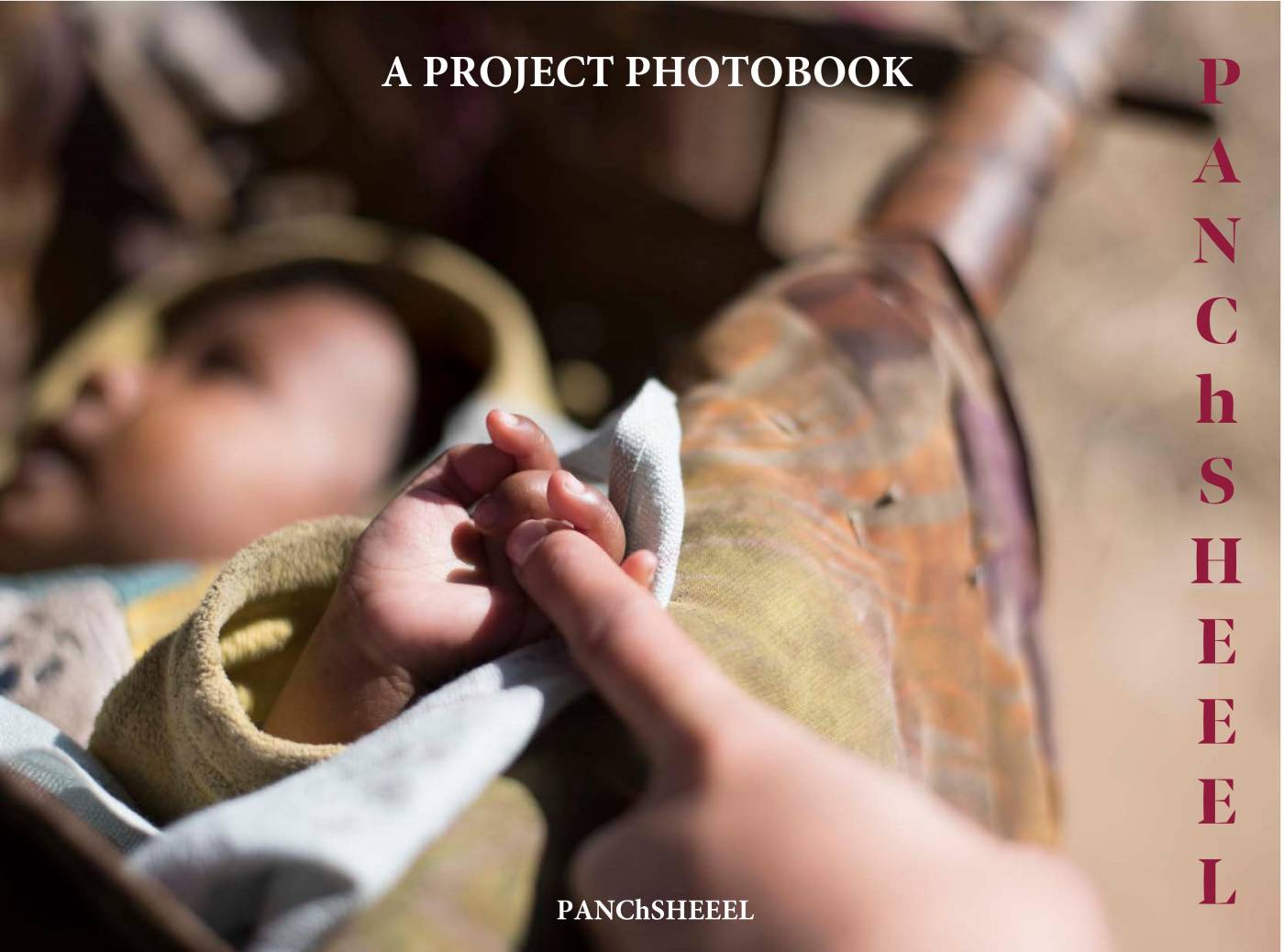
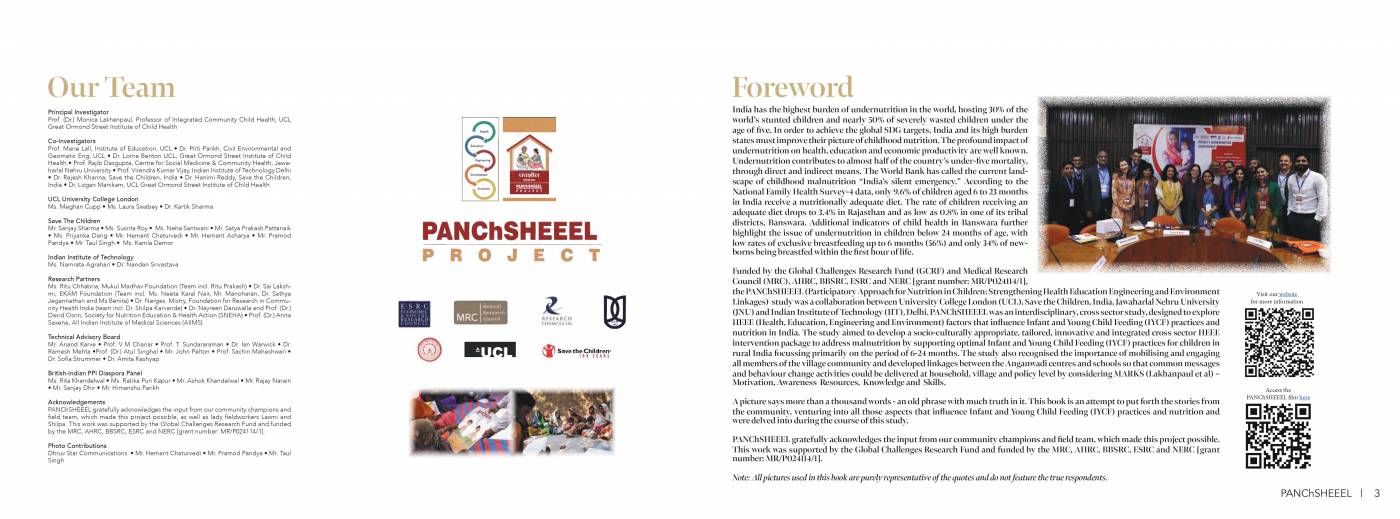
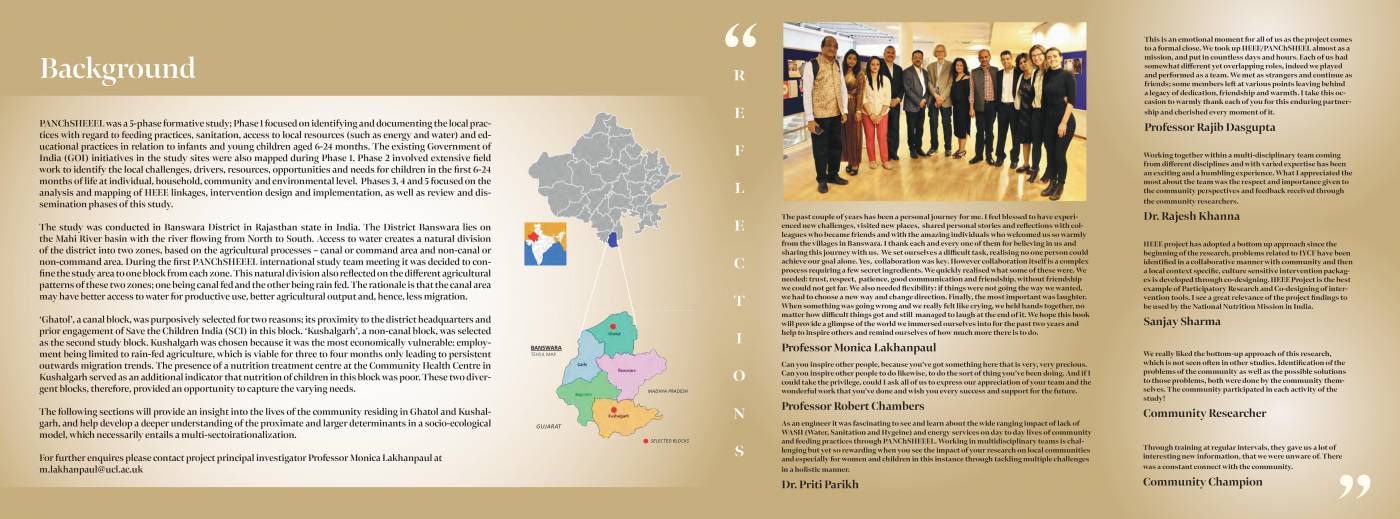
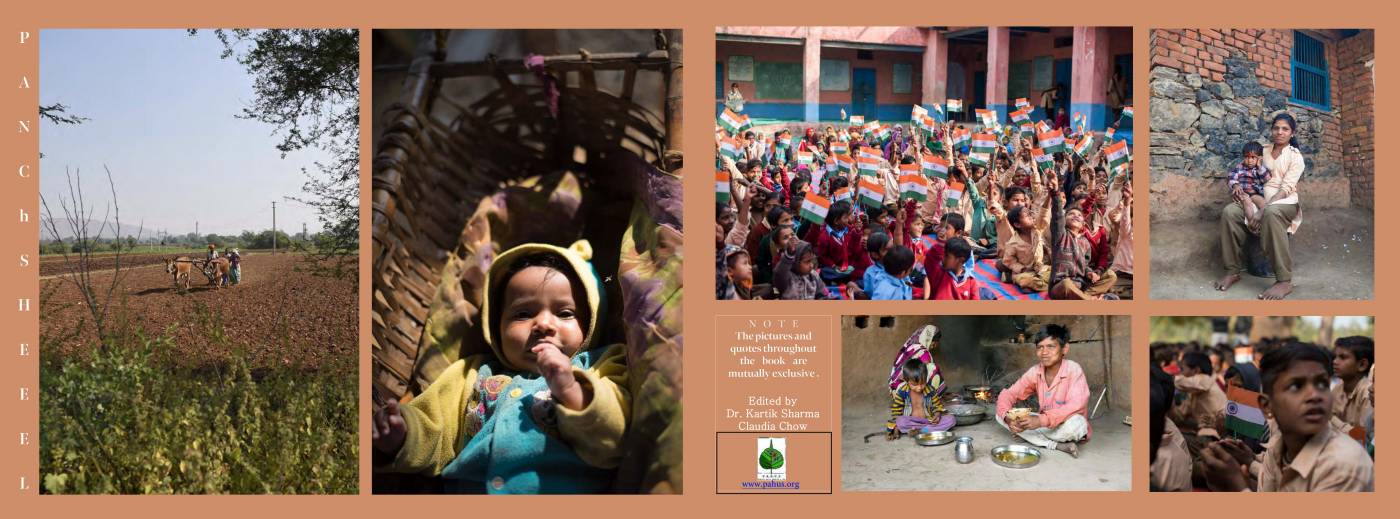
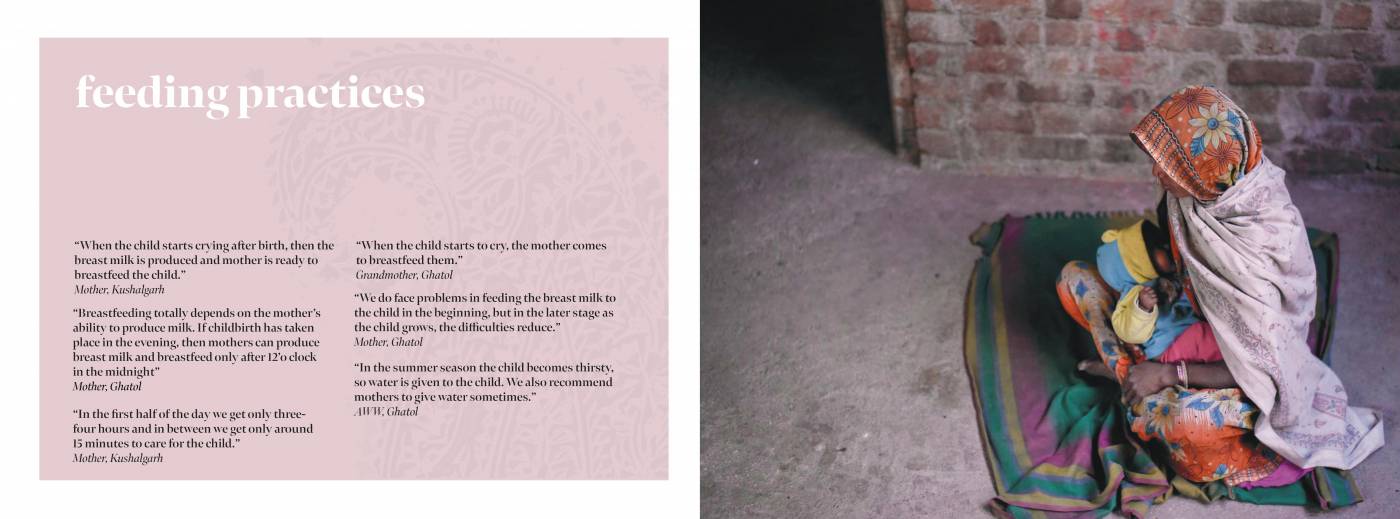
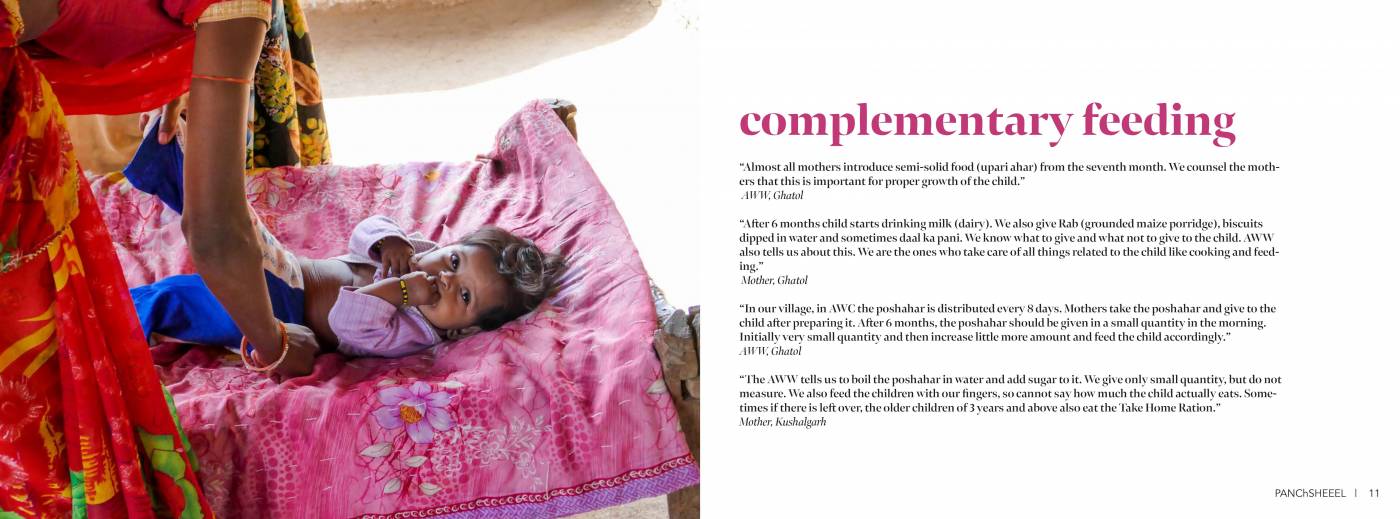
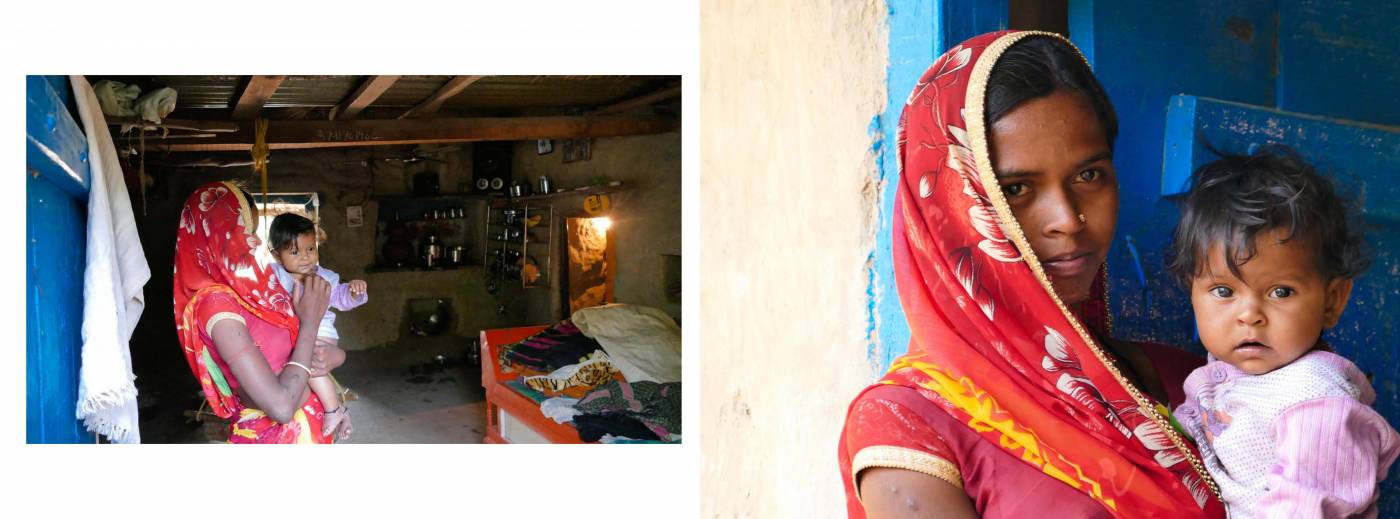
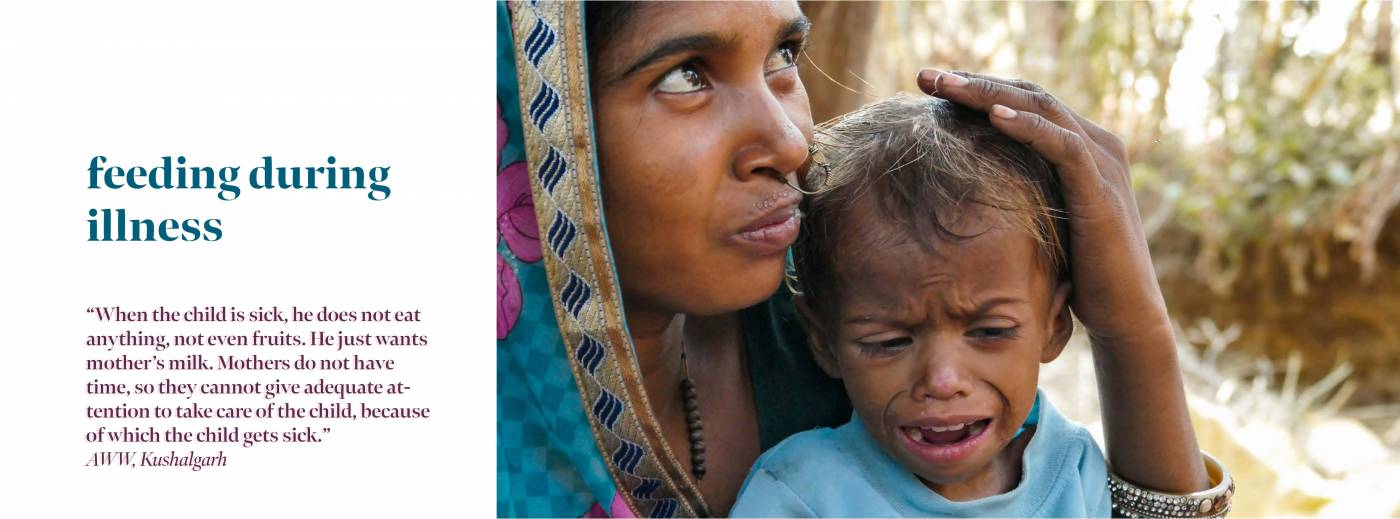
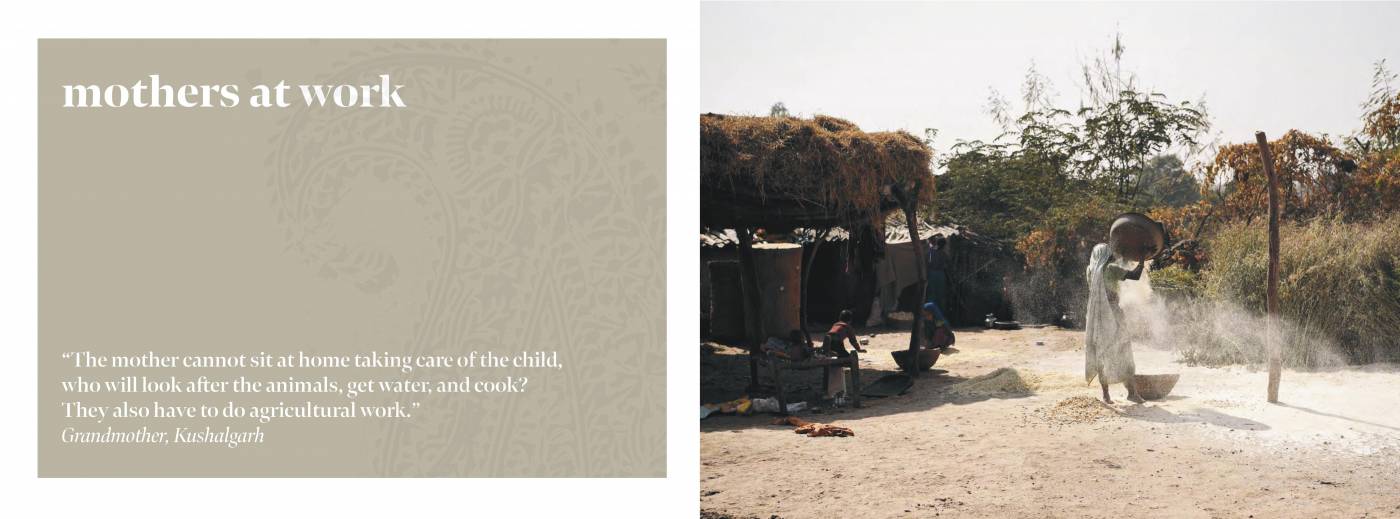
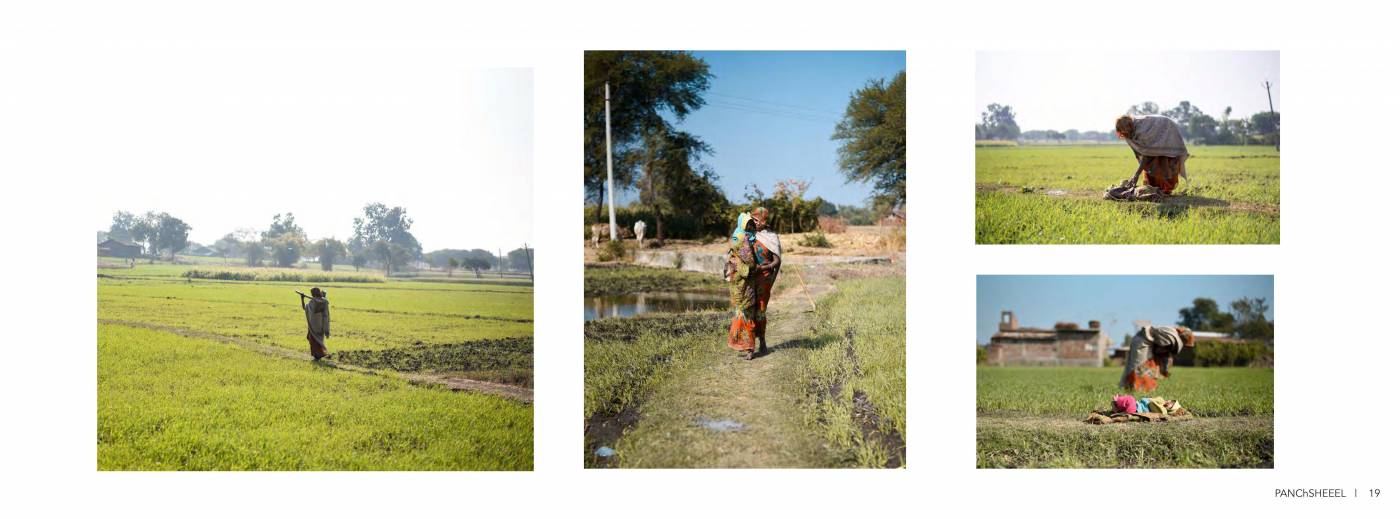
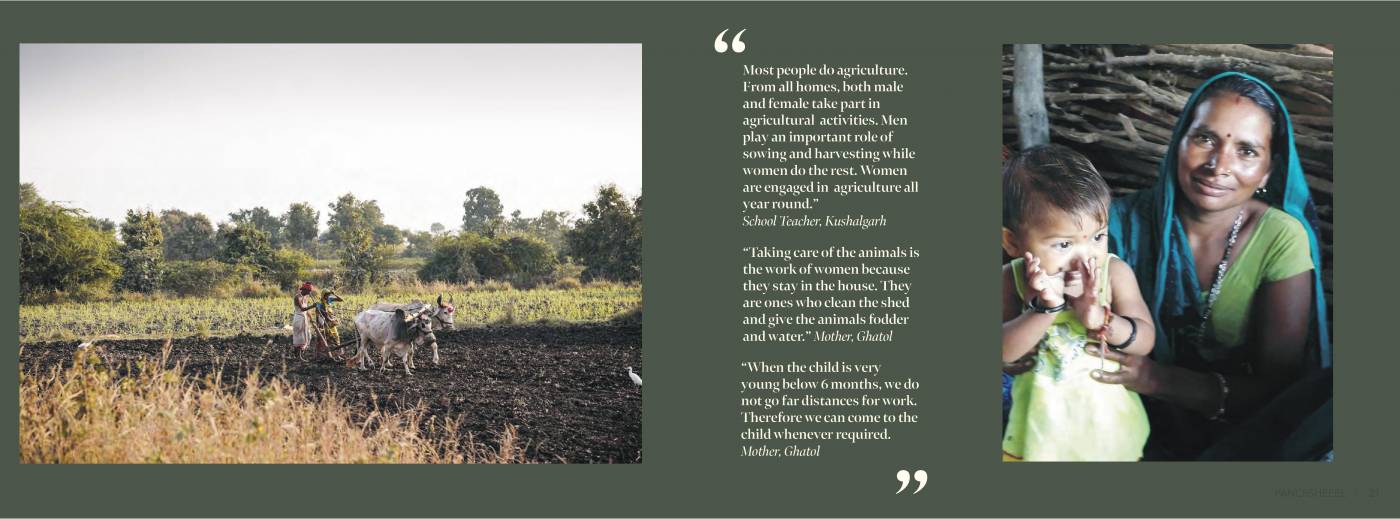
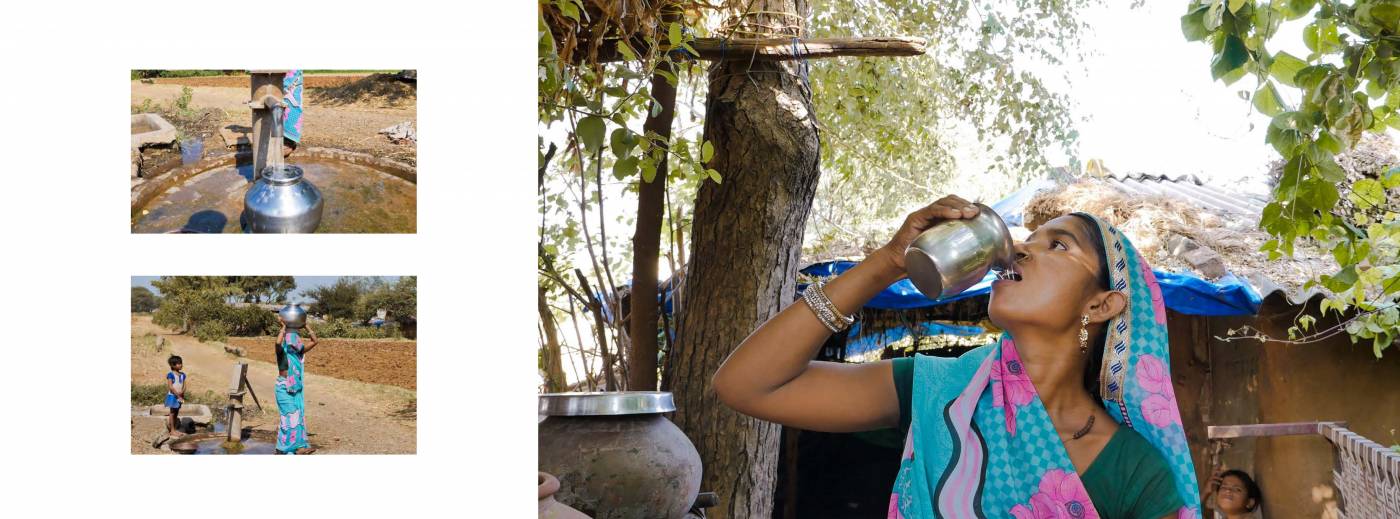
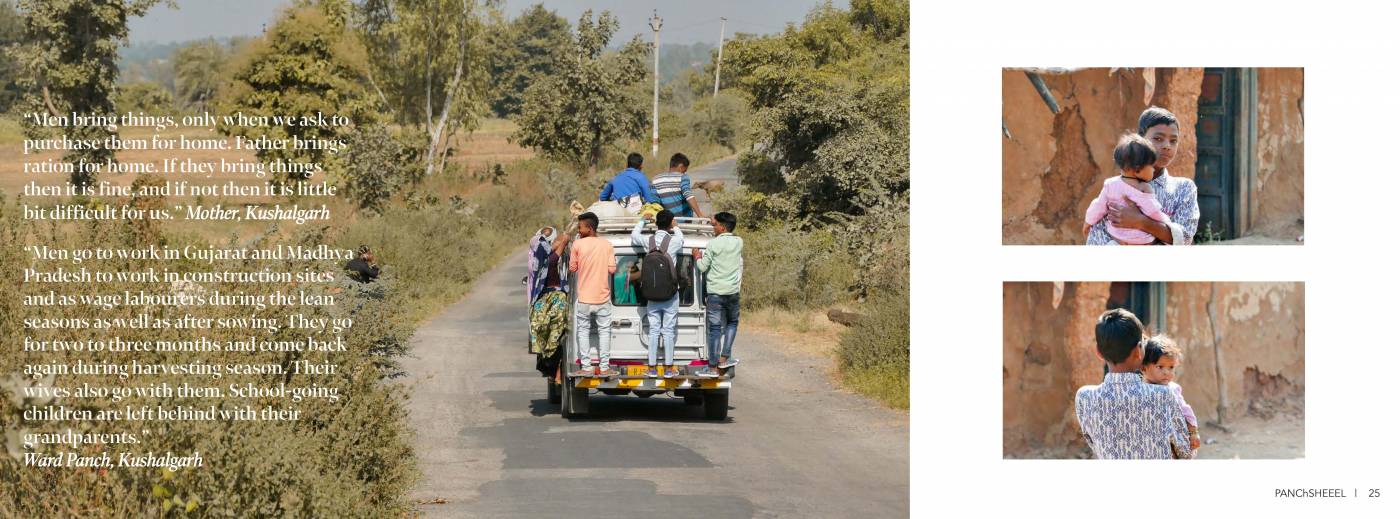
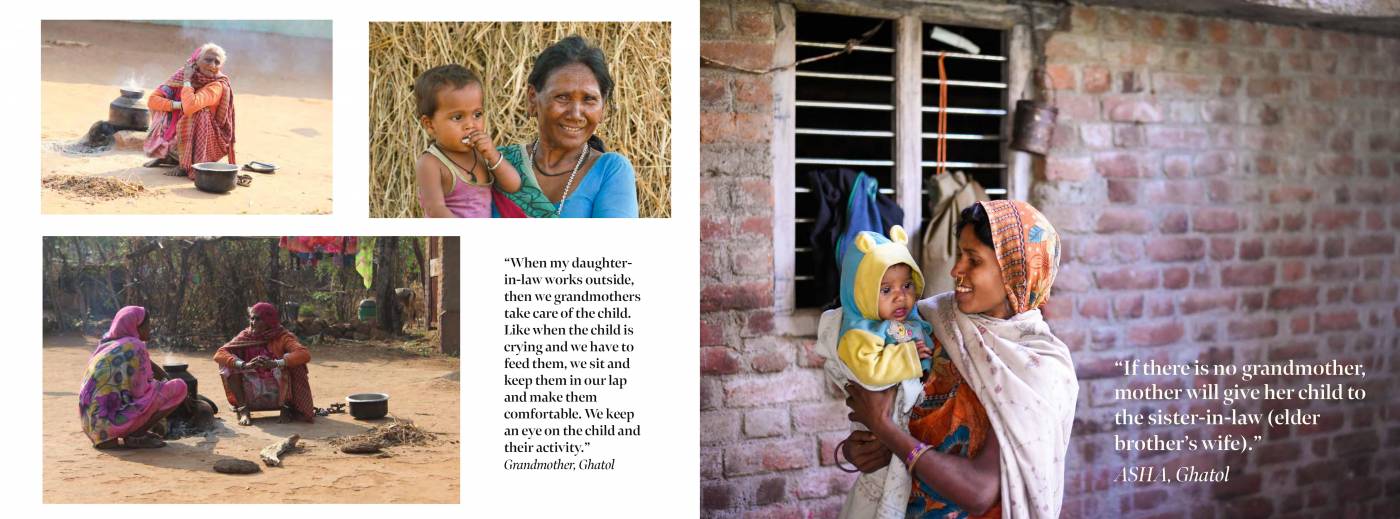
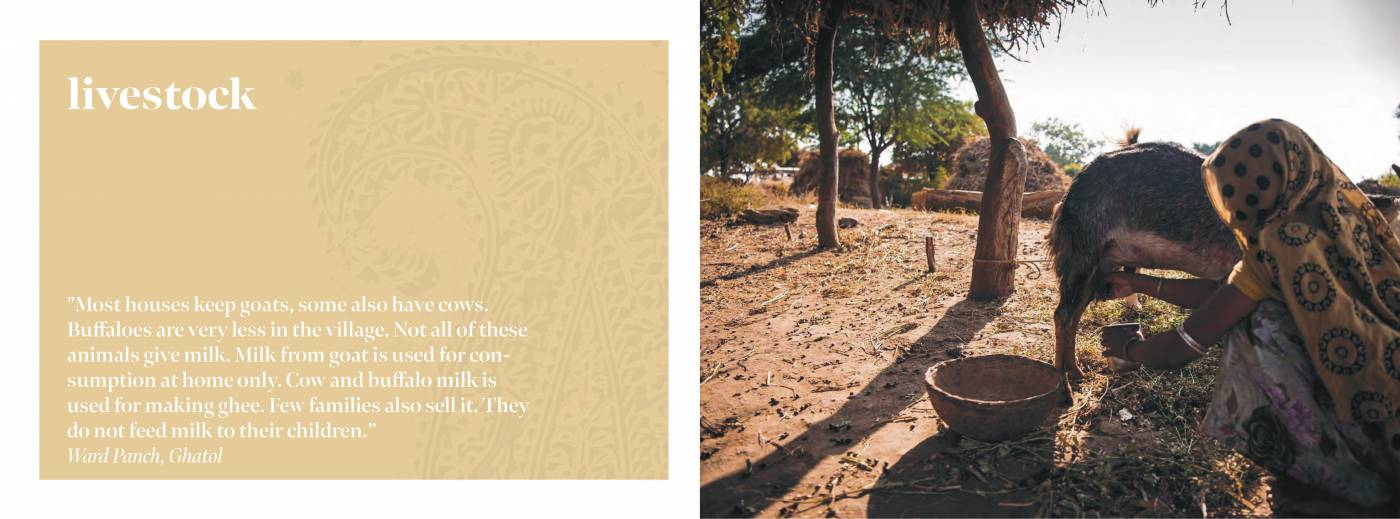
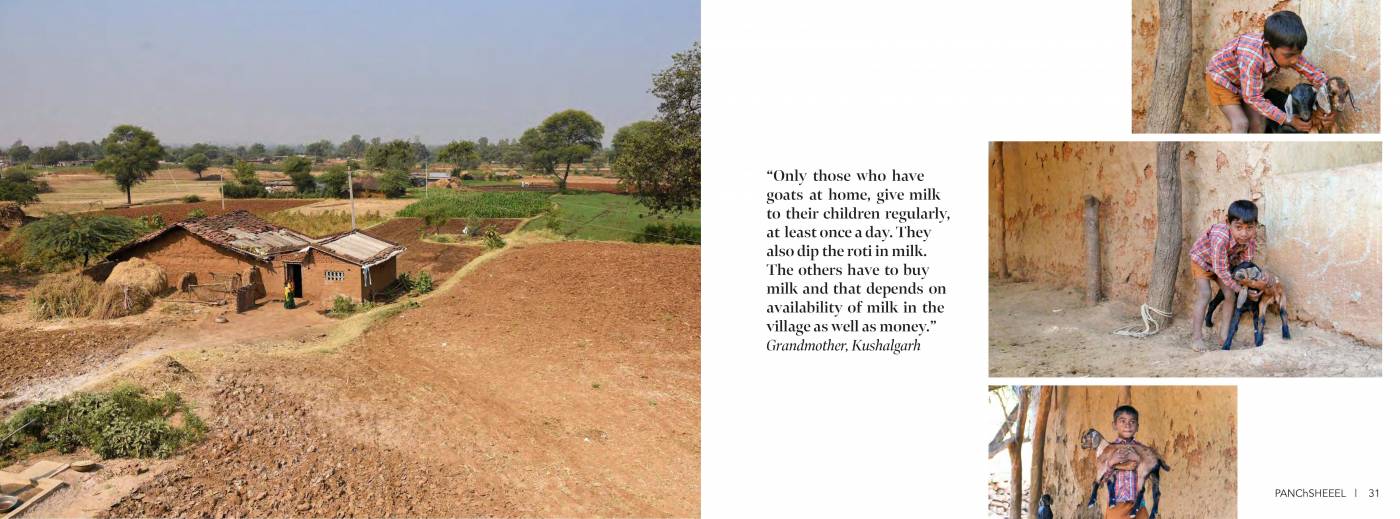
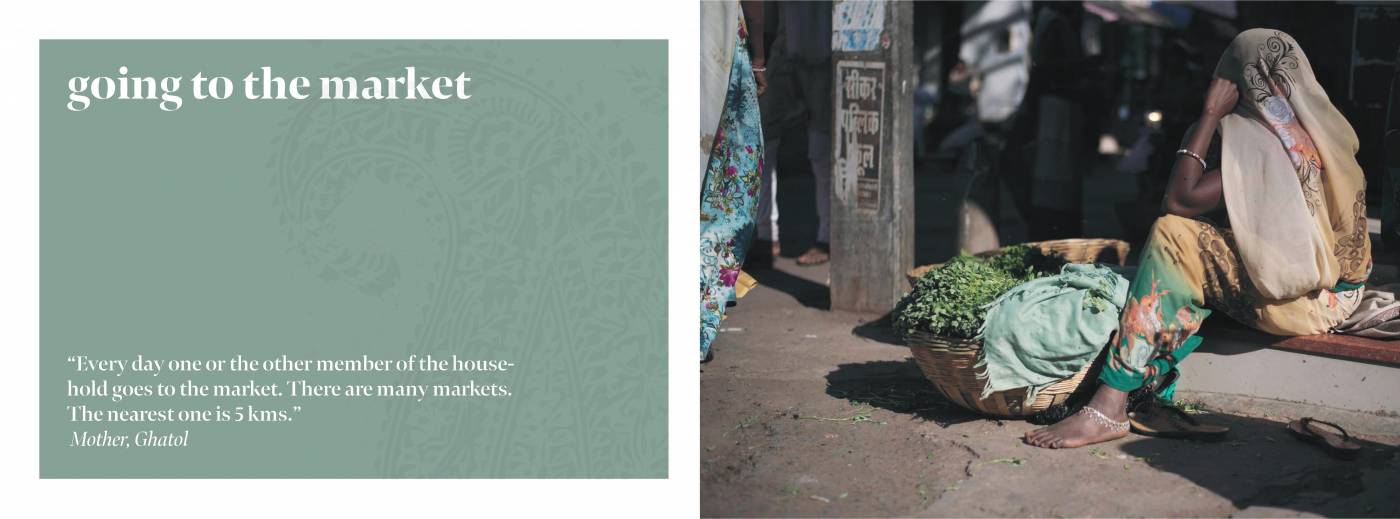
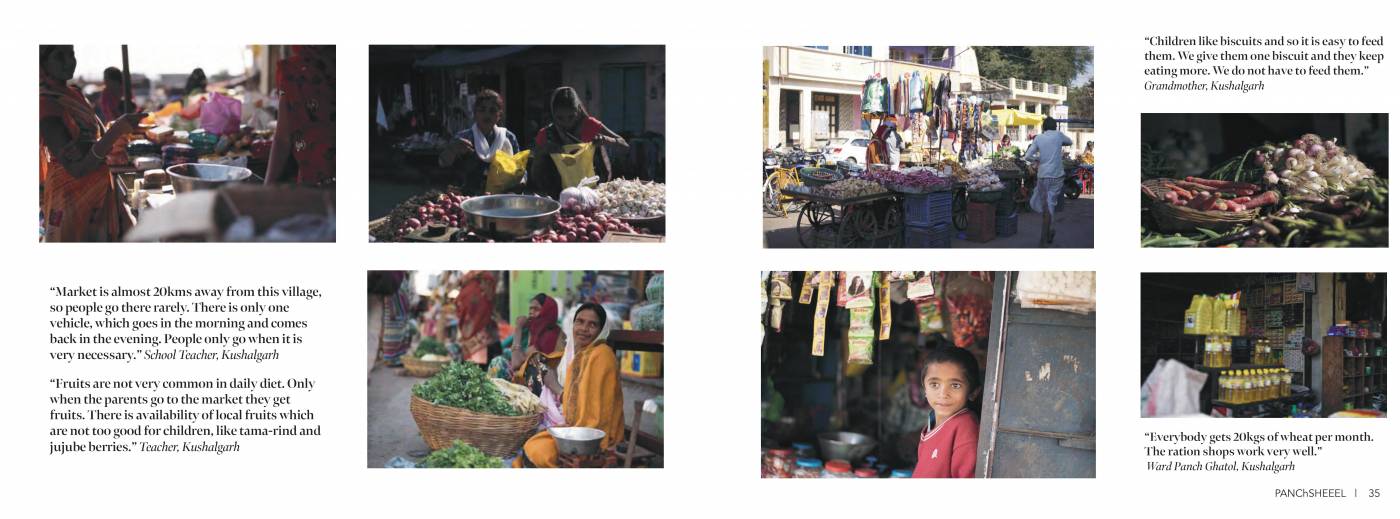
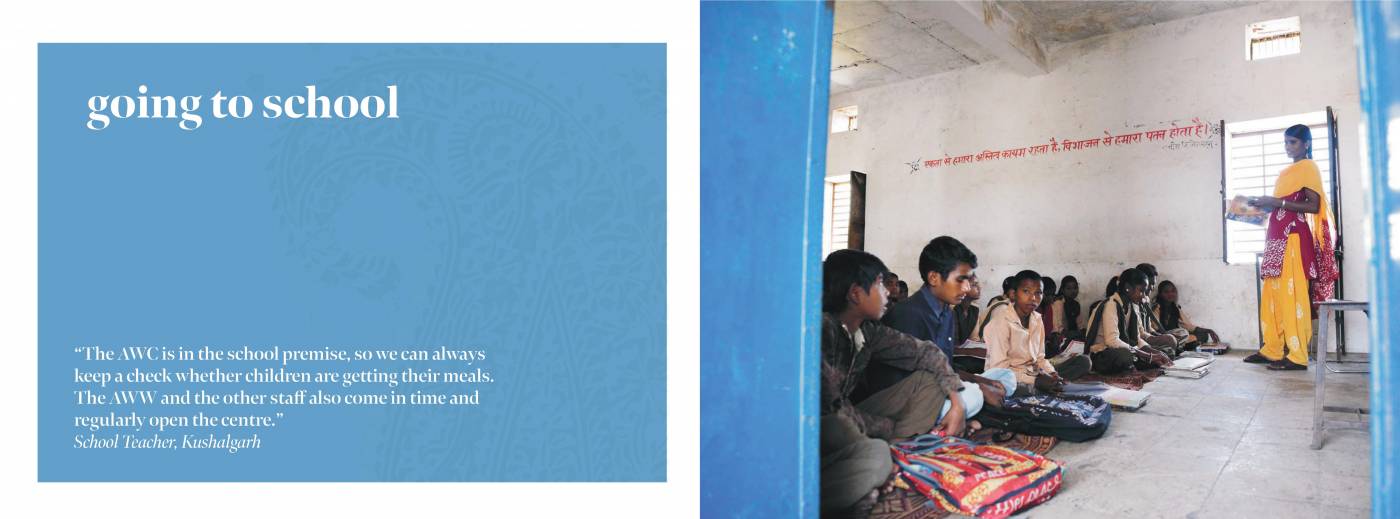
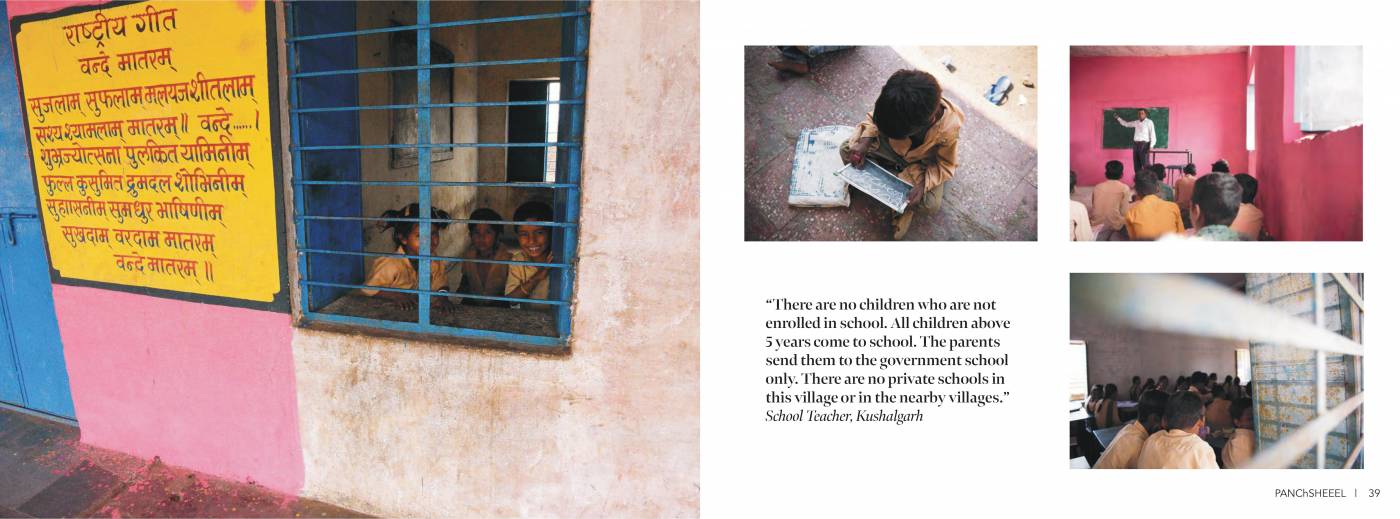
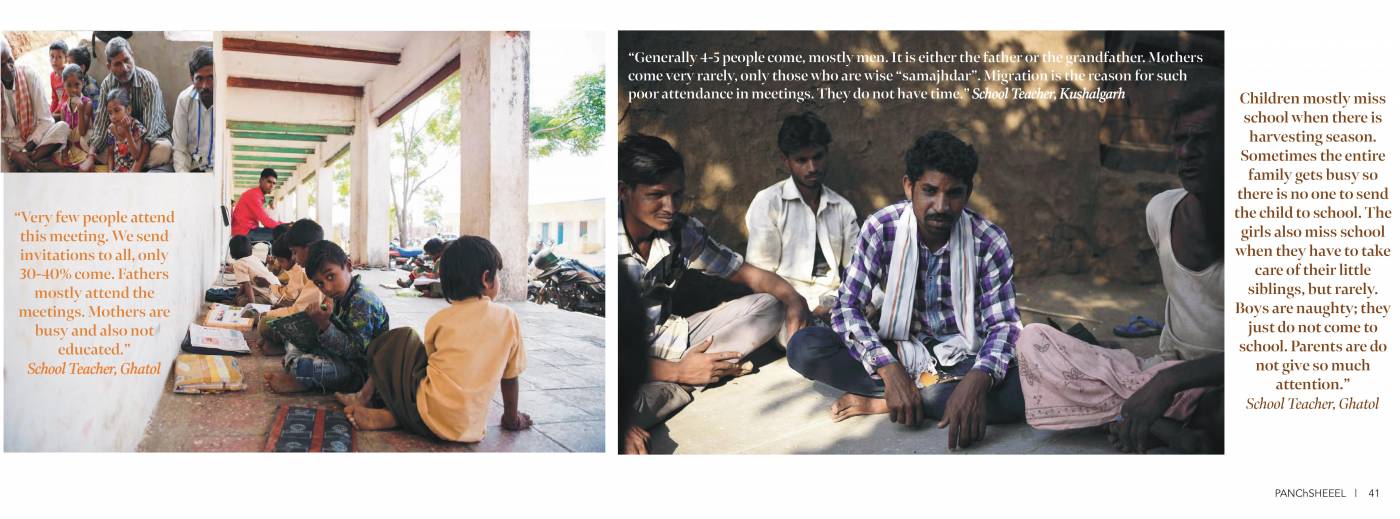
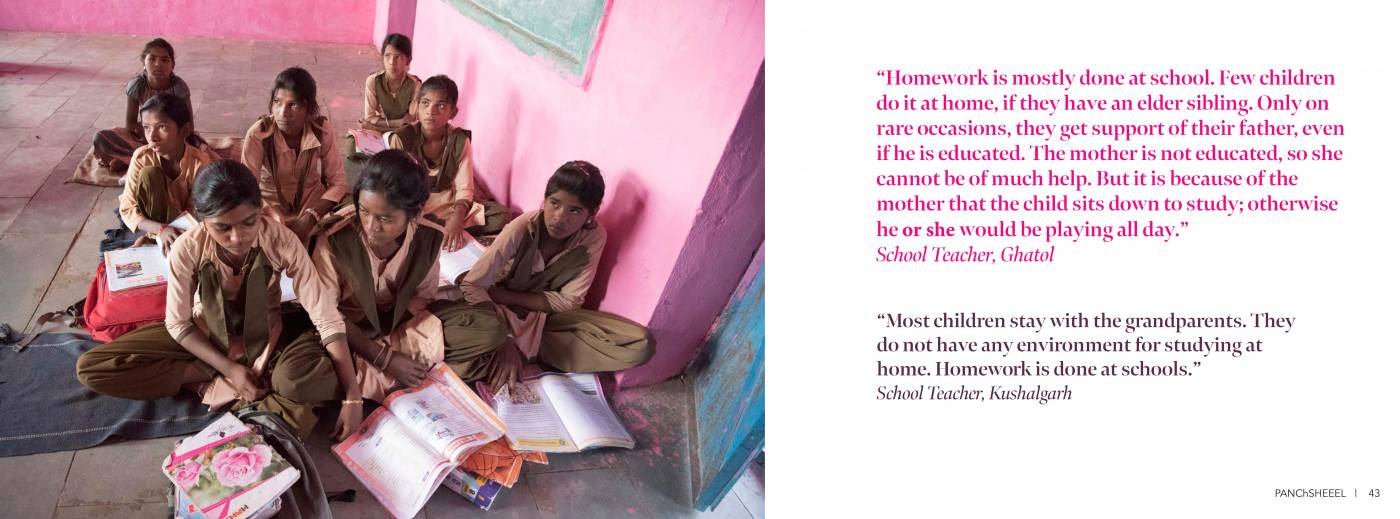
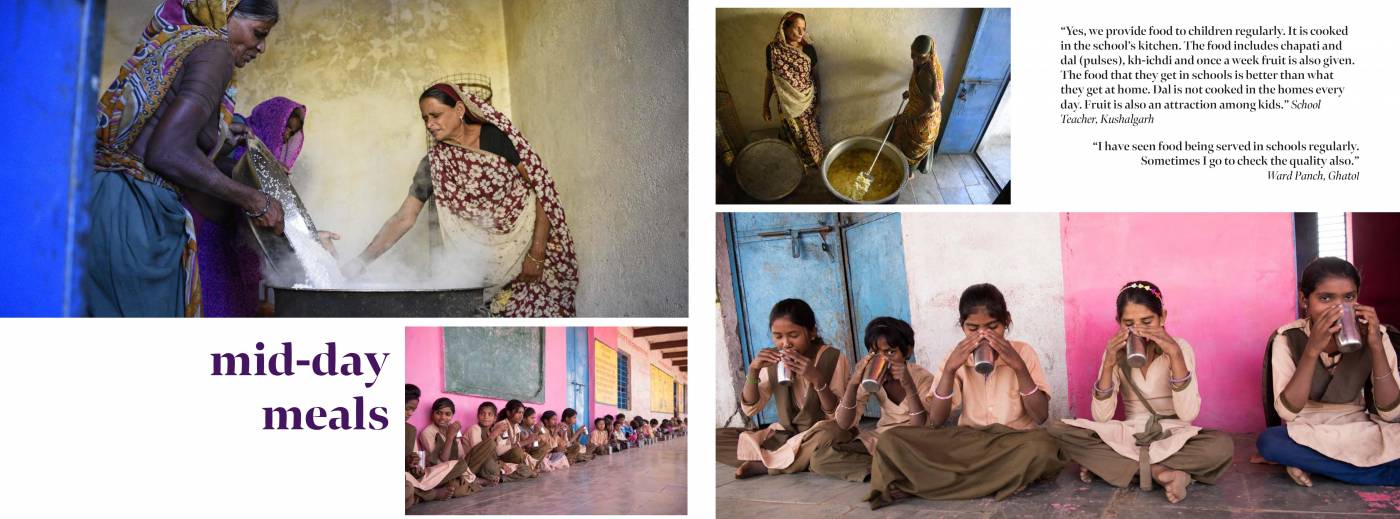
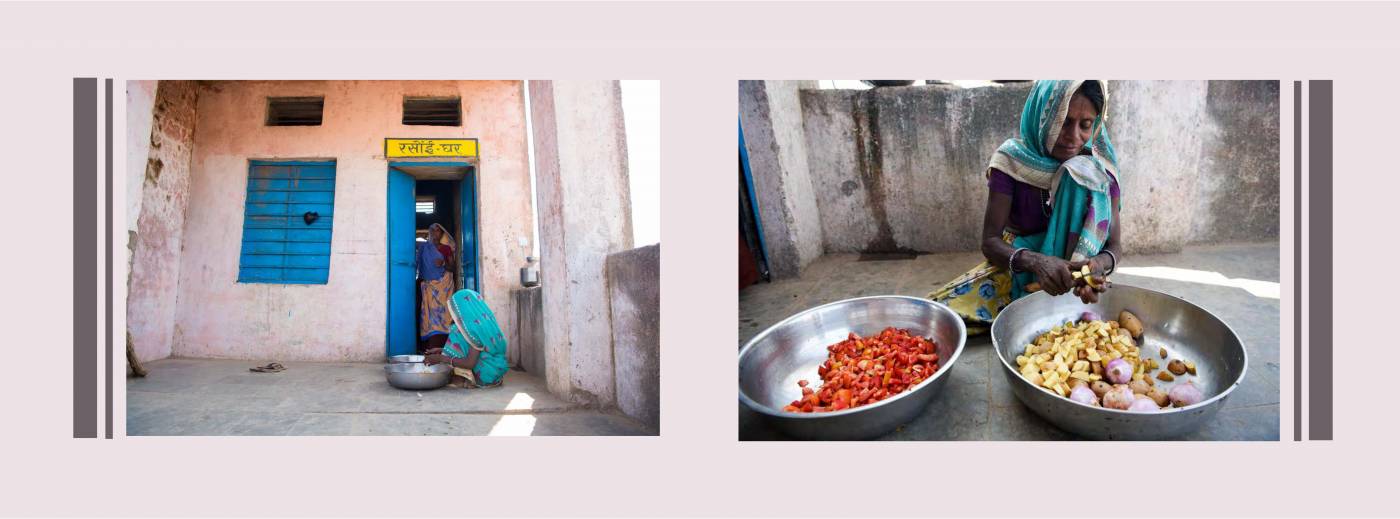
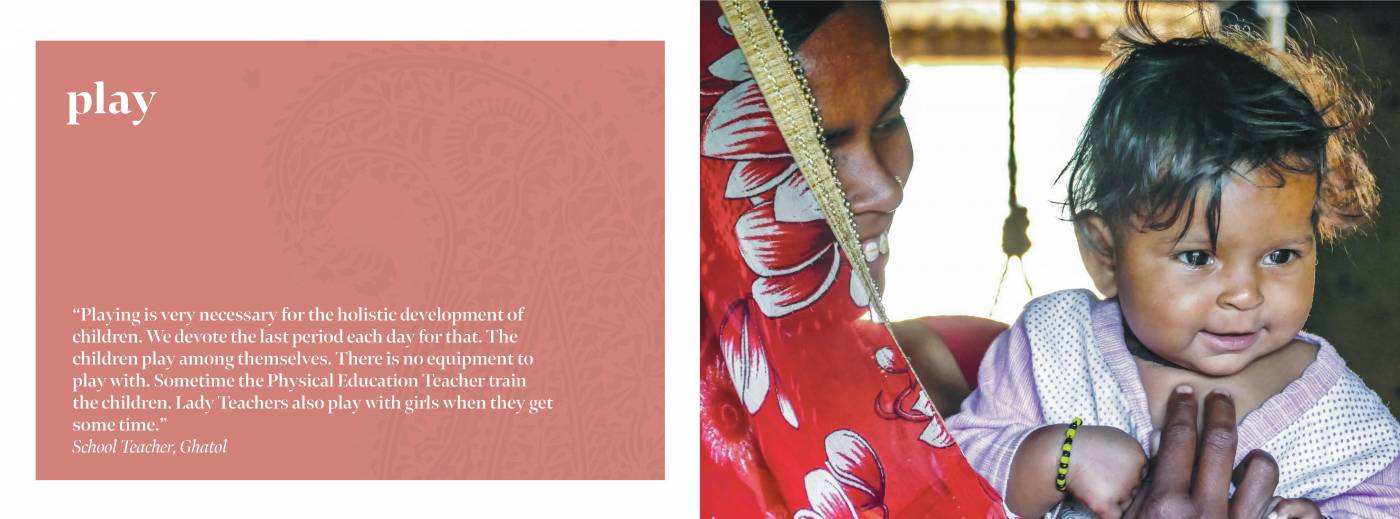
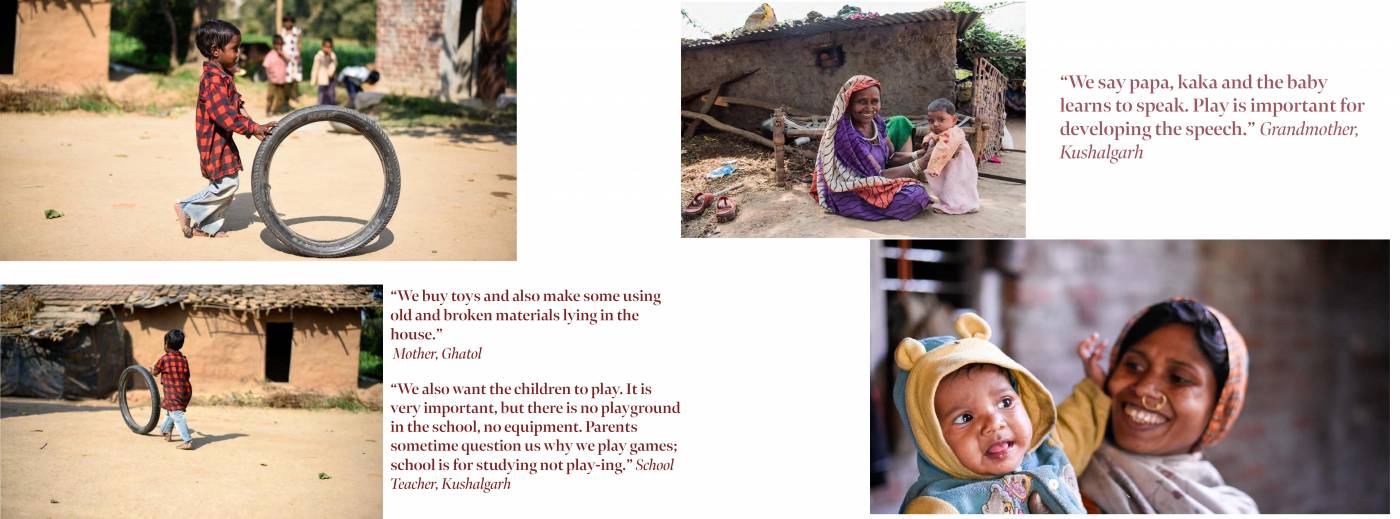
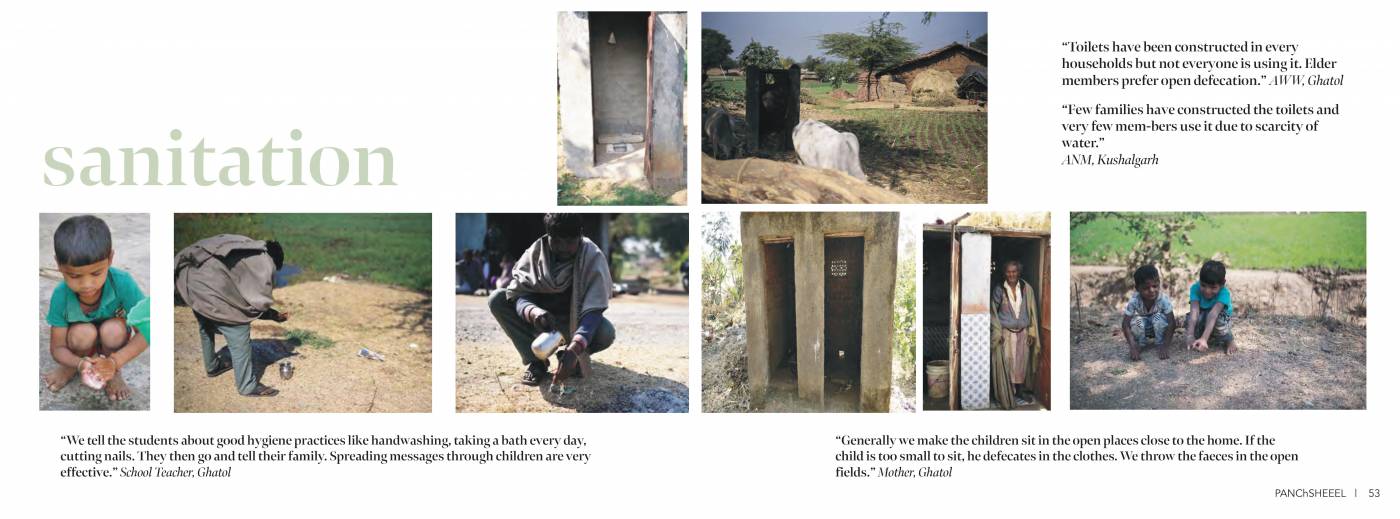
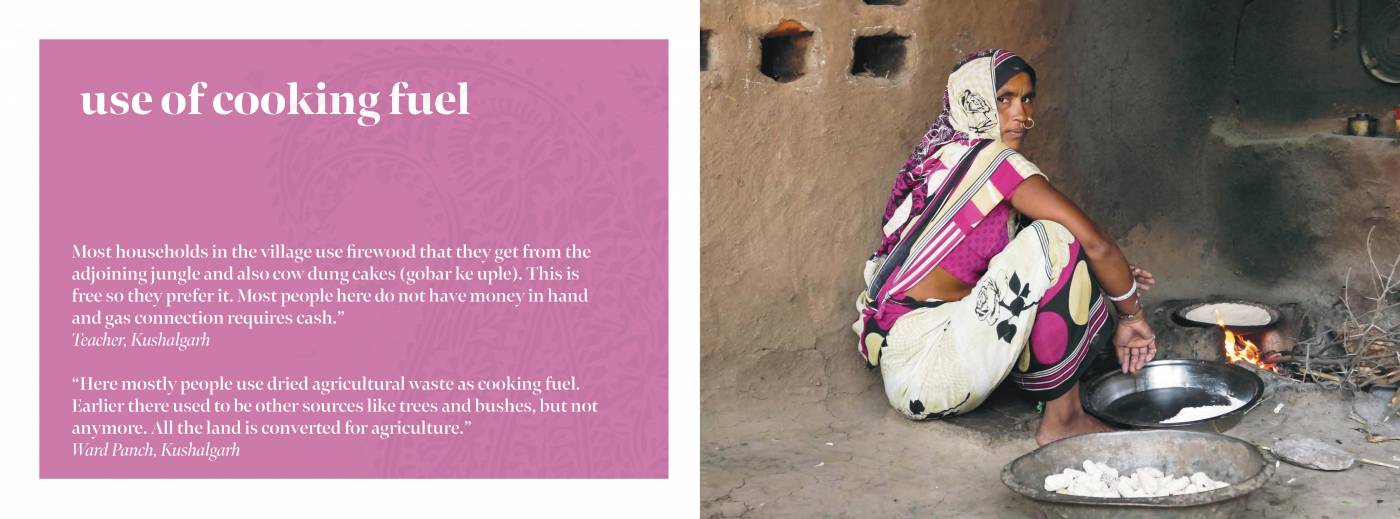
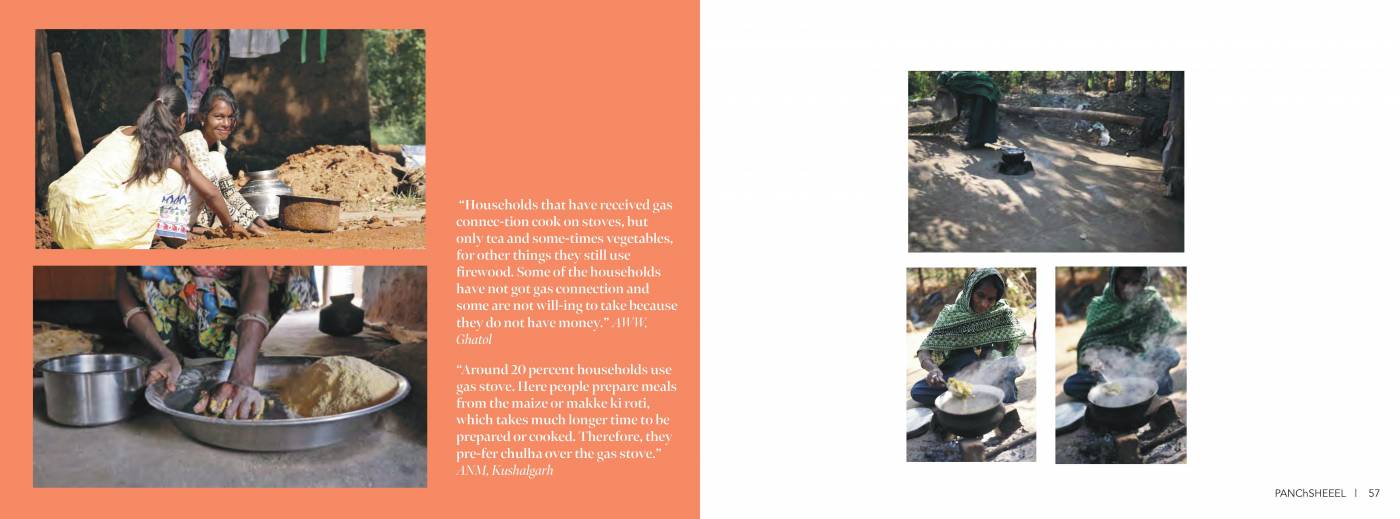
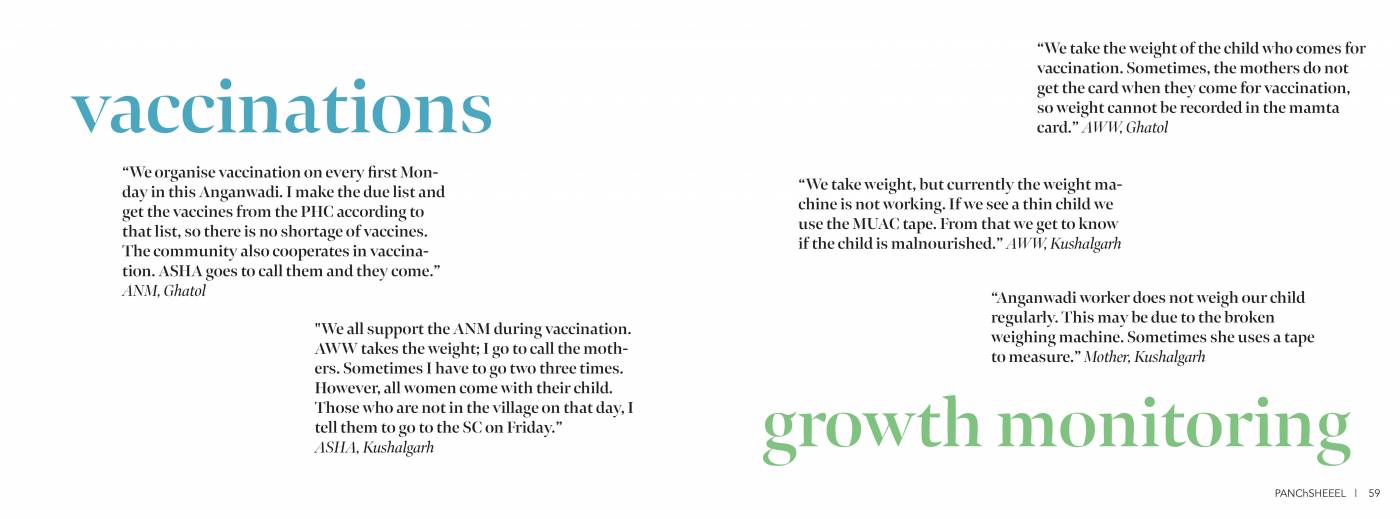
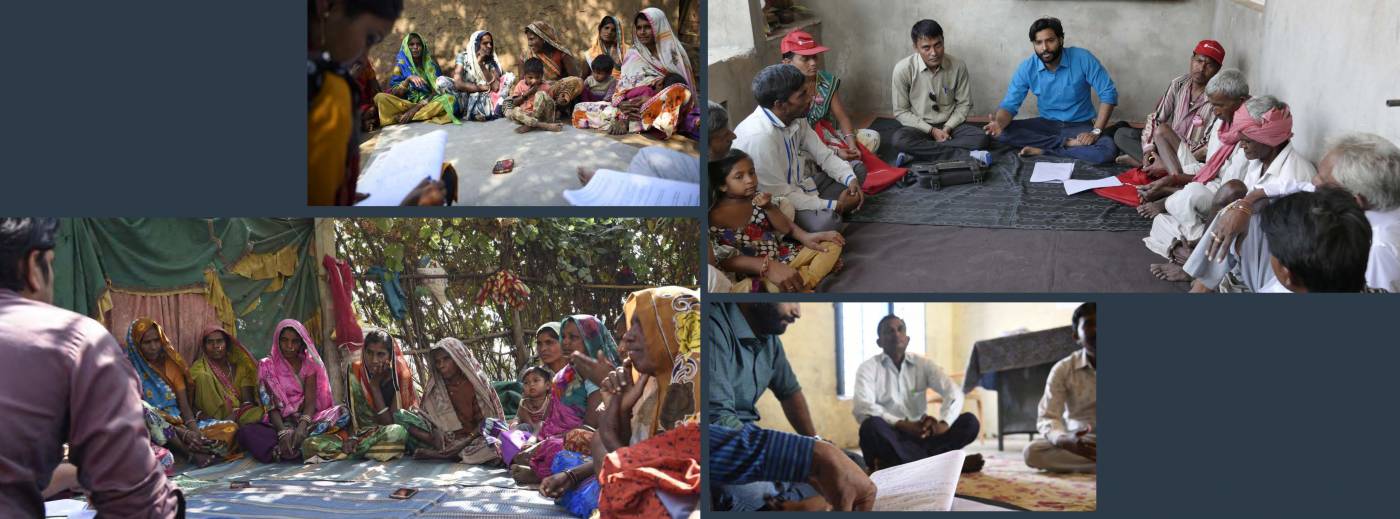
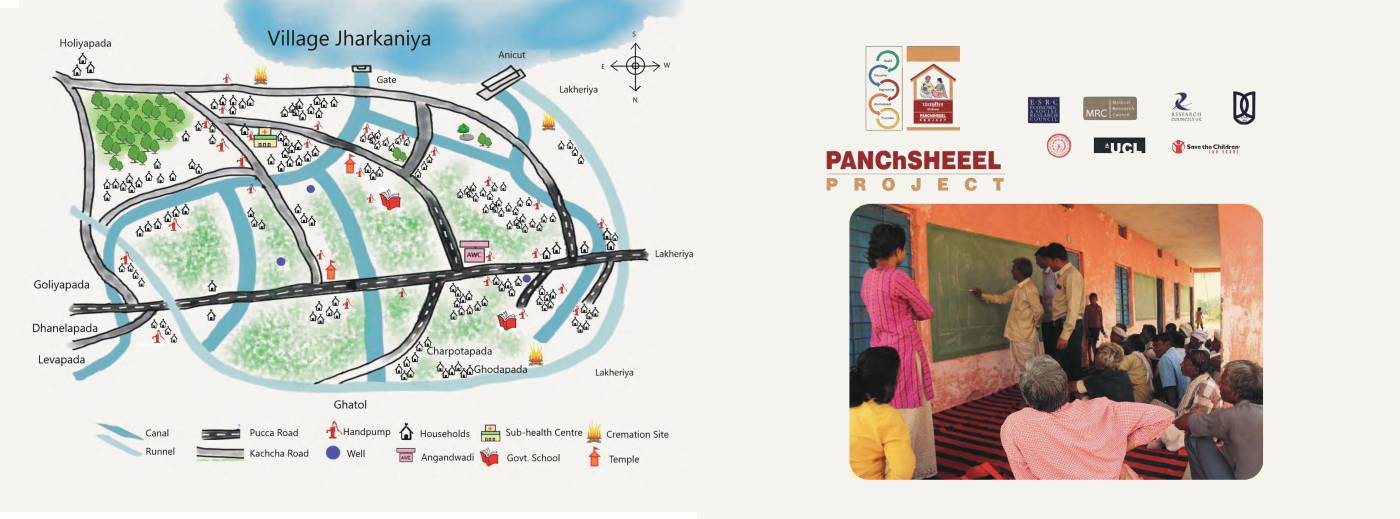
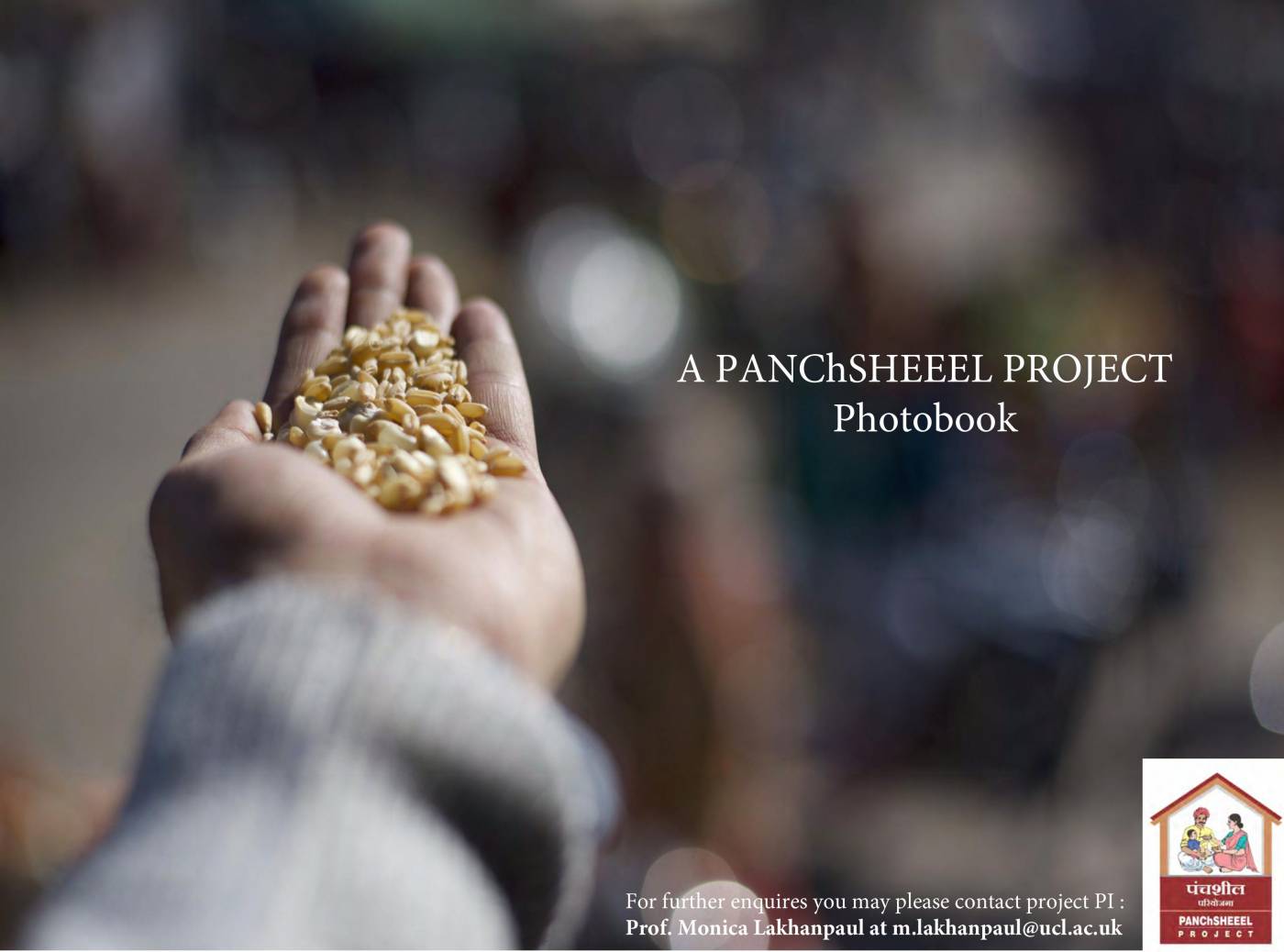
The PANChSHEEEL project sought to foster collaboration between our research team, local schools, Anganwadi Workers and communities to develop an integrated system that links HEEE solutions for optimization of ICYF in two villages of Banswara (Ghatol and Kushalgarh). PANChSHEEEL uses schools and Anganwadi centres as new innovation hubs for sustained community engagement, health promotion, and behaviour change. Our formative research uncovered detailed information about factors across the Health Education, Engineering and Environment (HEEE) domains and tied them back to IYCF to determine priority areas for intervention from a socio-ecological viewpoint (individual, inter-personal, organizational, community and governmental levels). Following this formative phase, we developed a socio-culturally appropriate, tailored, integrated and interdisciplinary HEEE package aimed at optimising IYCF (6- 24 months) in rural India and assessed the acceptability of the intervention through engagement and co-design with the community.
Linking Expertise
PANChSHEEEL provides us a platform to link expertise across diverse disciplines enabling us to hear local voices and develop solutions together to address global challenges with global partners.
Evidence has shown that adopting an integrated holistic approach to the designing of solutions is more effective at supporting recovery and development rather than if siloed according to particular agency specializations. Three areas that particularly benefit from this linkage include Health, Education, Engineering and Environment.
HEEE aligns with Government of India initiatives: Swatch Bharat (Clean India Mission), Unnat Bharat Abhiyan (Rural Development Mission) and Sarva Shiksha Abhiyan (Education for all).
Team
Our collaborative approach includes an interdisciplinary team from UCL and expertise from; Save the Children- India, The Indian Institute of Technology, New Delhi (IIT-Delhi) and Jawaharlal Nehru University, New Delhi (JNU).
Additionally, we have identified four NGO partner institutions to provide contextual and programmatic advice along with members from the British Indian diaspora.
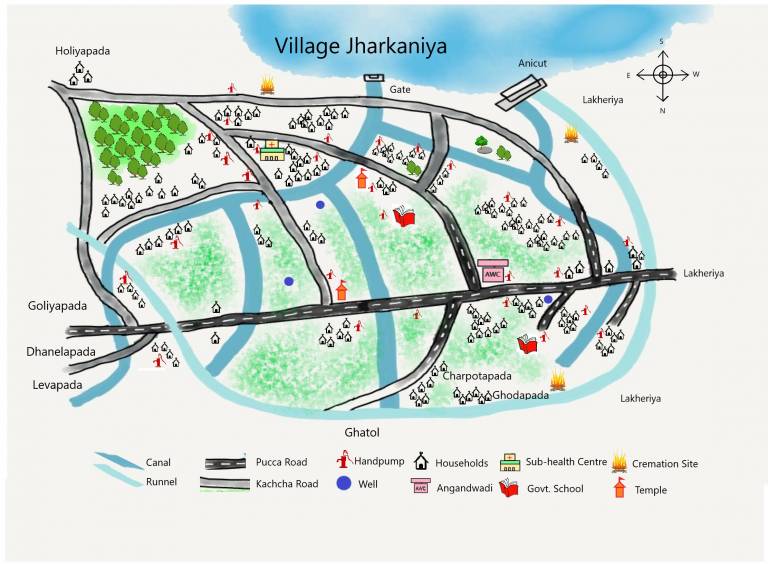
Social Map of Jharkaniya
- Principal Investigator
Prof. Monica Lakhanpaul is Professor of Integrated Community Child Health in the Faculty of Population Sciences. Her work has focussed on using structured collaborative participatory methods to co design interventions for community health issues.
Her work has taken a lifecourse approach and primarily addressed problems such as nutrition, asthma and disability relevant to South Asian families in the UK and she now wishes to use this knowledge to address problems globally.
- Co-Investigators
Prof. Marie Lall is Professor of Education and South Asian Studies in the department of Education, Practice & Society at the Institute of Education.
Her work has focused on bringing the voices of marginalised populations (either because they are minorities, or they are poor) into the education policy process. Her work focuses on India, Pakistan and Myanmar and she has over 23 years of experience in the region.
Dr Priti Parikh is Senior Lecturer in Civil, Environ & Geomatic Engineering with over 15 years’ experience of water, sanitation and energy provision in slums and rural communities.
Her research also covers gender-based violence near public toilets, business models for infrastructure, consumer preferences for technologies and appropriate technologies. She has pioneered an innovative MSc programme titled MSc in Engineering for Development.
- Dr Lorna Benton UCL, Great Ormond Street Institute of Child Health
- Professor Rajib Dasgupta, Centre for Social Medicine & Community Health, Jawaharlal Nehru University
- Professor Virendra Kumar Vijay, Indian Institute of Technology Delhi
- Dr Rajesh Khanna, Save the Children, India
- Dr Hanimi Reddy, Save the Children, India
- Dr Logan Manikam, UCL IEHC & Aceso Global Health Consultants Ltd.
- Save The Children
- Sanjay Sharma
- Susrita Roy
- Neha Santwani
- Satya Prakash Pattanaik
- Priyanka Dang
- Hemant Chaturvedi
- Indian Institute of Technology
- Namrata Agrahari
- Research Partners
- Ritu Chhabria, Mukul Madhav Foundation (Team inc Ritu Prakash)
- Dr.Sai Lakshmi, EKAM Foundation (Team inc Ms. Neeta Karal Nair, Mr. Manoharan, Dr. Sathya Jegannathan and Ms. Benita)
- Dr Nerges Mistry, Foundation for Research in Community Health India (team inc Dr. Shilpa Karvande)
- Dr Nayreen Daruwalla and Dr David Osrin, Society for Nutrition Education & Health Action (SNEHA)
- Prof Anita Saxena
- Technical Advisory Board
- Mr Anand Karve
- Prof V M Chariar
- Prof T. Sundararaman
- Dr Ian Warwick
- Dr Ramesh Mehta
- Prof Atul Singhal
- John Pelton
- Professor Sachin Maheshwari
- Dr Sofia Strummer
- Dr Amita Kashyap
- Study Outputs and Resources
Rajasthan Policy Report
National and Global Policy Report
Amalgamated Report
Intervention Development Report
Toolkit
Infographics
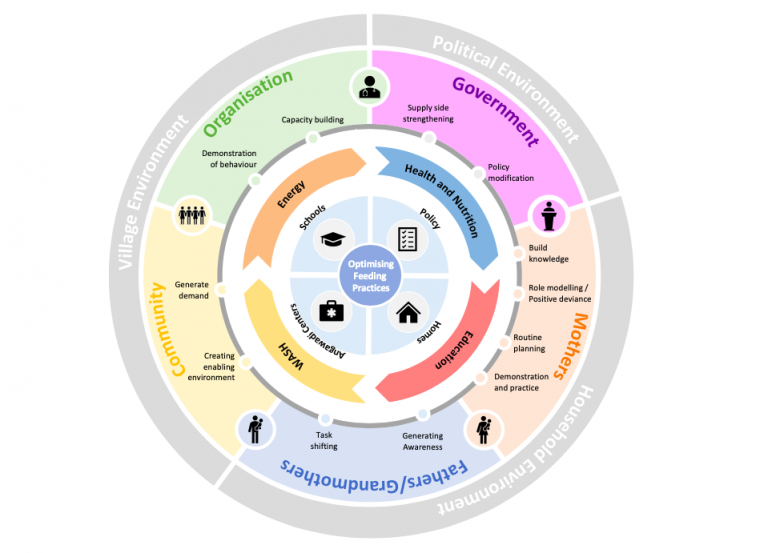
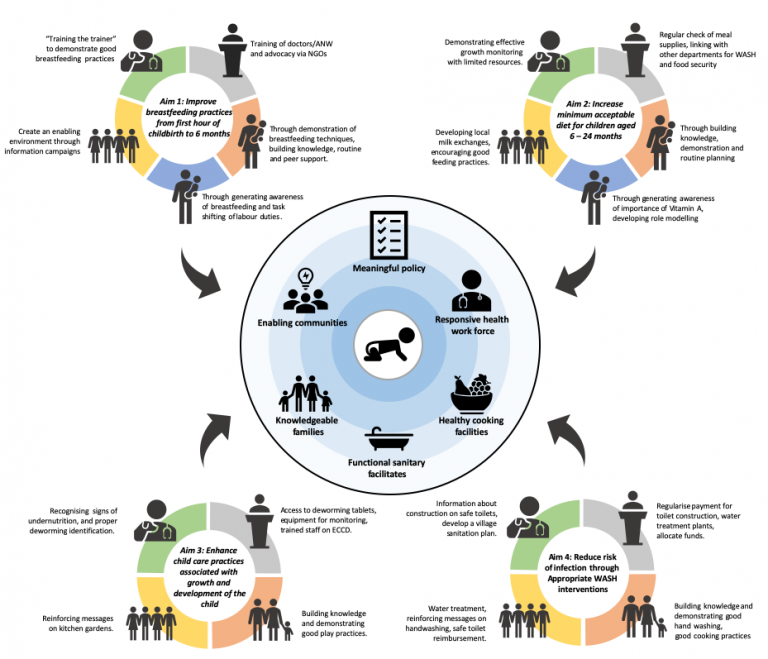
Conference Proceedings (Delhi) Conference Proceedings (London)
Video from the London Dissemination Event
Photos
- Acknowledgement
This work was supported by the Global Challenges Research Fund and funded by the MRC, AHRC, BBSRC, ESRC and NERC [grant number: MR/P024114/1].
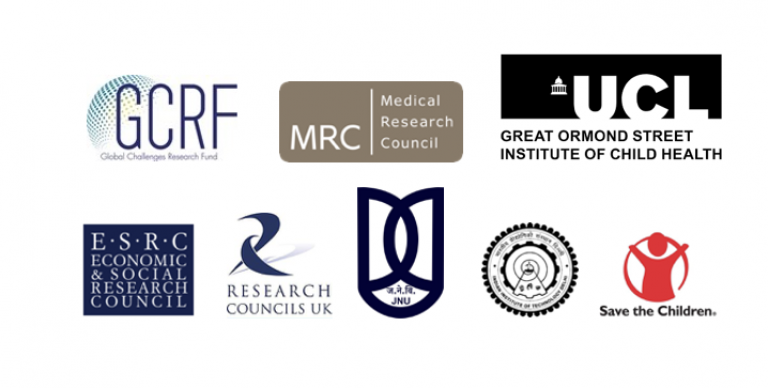
- Selected publications
Prasad, A., Lakhanpaul, M., Narula, S., Patel, V., Piot, P., & Venkatapuram, S. (2017). Accounting for the future of health in India. The Lancet. doi:10.1016/S0140-6736(17)303
Belur, J. S., Parikh, P., Daruwalla, N., Joshi, R., & Fernandes, R. (2016). Perceptions of gender based violence around public toilets in Mumbai slums. International Journal of Comparative and Applied Criminal Justice. doi:10.1080/01924036.2016.1240094
Lakhanpaul, M., Benton, L., Ahmed, S., Manikam, L., & Martin, J. (2016). A participatory approach to improved infant nutrition and complimentary feeding practices in British Bangladeshi families.
South, A. and Lall, M. (2016) Schooling and Conflict: ethnic education and mother tongue based teaching in Myanmar, The Asia Foundation, San Francisco. http://asiafoundation.org/publication/schooling-and-conflict-ethnic-education-and-mother-tongue-based-teaching-in-myanmar/
Degert, I., Parikh, P. H., & Kabir, R. (2016). Sustainability assessment of a slum upgrading intervention in Bangladesh. Cities, 56, 63. doi:10.1016/j.cities.2016.03.002
Woolf, S., twigg, J., Parikh, P. H., karaoglou, A., & cheab, T. (2016). Towards measurable resilience: A novel framework tool for the assessment of resilience levels in slums. International Journal of Disaster Risk Reduction. doi:10.1016/j.ijdrr.2016.08.003
Nambiar, B., Hargreaves, D. S., Morroni, C., Heys, M., Crowe, S., Pagel, C., . . . Colbourn, T. (2016). Improving health-care quality in resource-poor settings. BULLETIN OF THE WORLD HEALTH ORGANIZATION, 95 (1), 76-78. doi:10.2471/BLT.16.170808
Parikh, P., Fu, K., Parikh, H., McRobie, A., & George, G. (2015). Infrastructure Provision, Gender, and Poverty in Indian Slums. World Development, 66, 468-486. doi:10.1016/j.worlddev.2014.09.014
Lall, M. (2015) ‘Community cohesion and the role of education in Pakistan and Bangladesh’. Heidelberg Papers in South Asian and Comparative politics number 75 ISSN: 1617-5069 pp. 1-27
Lall, M. (ed.) (2012) Policy, Discourse and Rhetoric: How New Labour Challenged Social Justice and Democracy, Sense Publishing, Amsterdam. ISBN Paperback: 9789460918155 ISBN Hardcover: 9789460918162
Lall, M. and Nambissan, G. (eds.) (2011) Education and Social Justice in the Era of Globalisation - India and the UK, Routledge, New Delhi. ISBN 978-0-415-69378-3
Lall, M. (2012) ‘Why education matters – school ‘choice’ and differing views on citizenship in Pakistan’, Citizenship Studies. Vol. 16 Number 2. pp. 269-286.
- Other Projects
1. Symbiosis International University
UCL and Symbiosis University have evaluated a schools-based nutrition, sanitation and environment intervention implemented by Symbiosis University. The UCL-Symbiosis partnership elucidated views from key stakeholders and identified opportunities to integrate with Government of India initiatives. Mapping exercises and qualitative data collection explored needs, barriers and models of mobilization, with the aim to identify linkages between health, education and environment for improved village health and wellbeing.
The study will identify contextualized recommendations for improved childhood nutrition.
2. IIT Delhi UCL Workshop
Indian Institute of Technology (IIT) Delhi and University College London (UCL), UK organised a three-day international workshop on the research theme titled, “Closed Loop Green Technologies for Rural Communities”. The workshop was hosted at IIT Delhi from 11–13 September 2017.
Dr. Priti Parikh, Associate Professor (UCL) and Dr. Ram Chandra, Energy Bioscience Overseas Fellow (IIT Delhi) are the lead coordinators for this event. This workshop is supported by a Researcher Links grant under the Newton Bhabha Fund.
The grant is funded by the UK Department of Business, Energy and Industrial Strategy (BEIS) and the Royal Society of Chemistry and delivered by the British Council. Researchers Links.
3. Closed loop green technologies for rural communities
The theme “closed loop green technologies for rural communities” is focused on environmental friendly solutions such as the reuse of solid and food waste for energy generation, improved water resources management, sanitation and energy provision. The workshop supports the Unnat Bharat Abhiyan with the vision of transformational change by leveraging knowledge of academic institutions. Unnat Bharat Abiyan connects academic institutions with local communities to address development challenges through participatory processes and appropriate technologies.
4. UCL Grand Challenges Gender Based Violence in School
Schools are often seen as safe places for girls and their parents. It is well-documented that girls in schools rarely report violence to their parents, due to fear or lack of access to support. There is little research which identifies and explores children’s experiences of violence in schools. The motivation for this research arose following informal focus group discussions with students from schools in India, in which it was disclosed that female students were subject to gender-based violence at school’s premises.
The aim of the research is to understand the nature of violence within a school/educational environment and the physical and structural factors that facilitate the occurrence of such incidents. Therefore, this research brings together the following disciplines:
1. Crime Science: Identify the situational determinants of violence against girls to understand its nature and extent.
2. Education: Understand the role of educational institutions as locations and teaching staff and identify existing awareness of acceptable behaviour and reporting avenues.
3. Built Environment/Engineering: Understand the role of the physical layout and/or infrastructure as crime facilitators (with a focus on how design can introduce vulnerabilities)
 Close
Close


